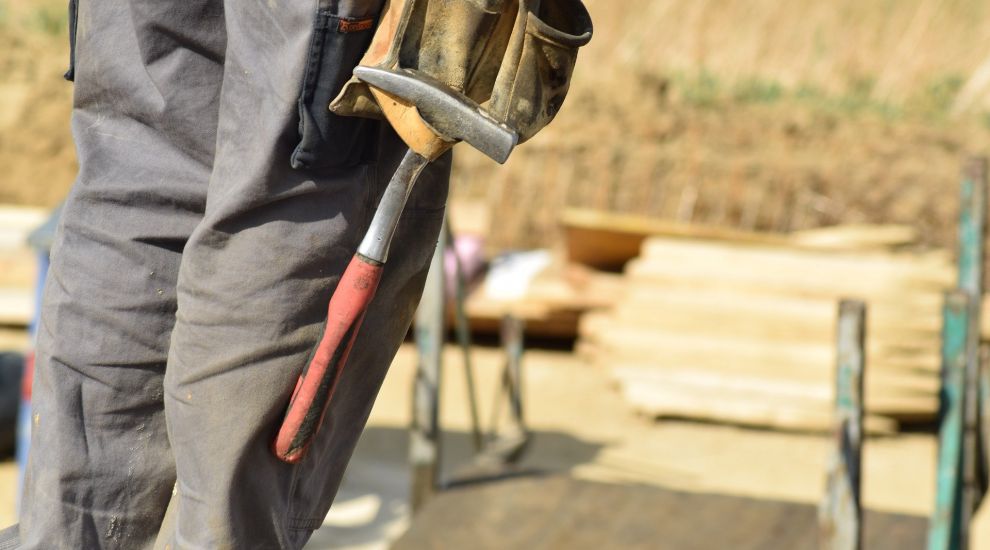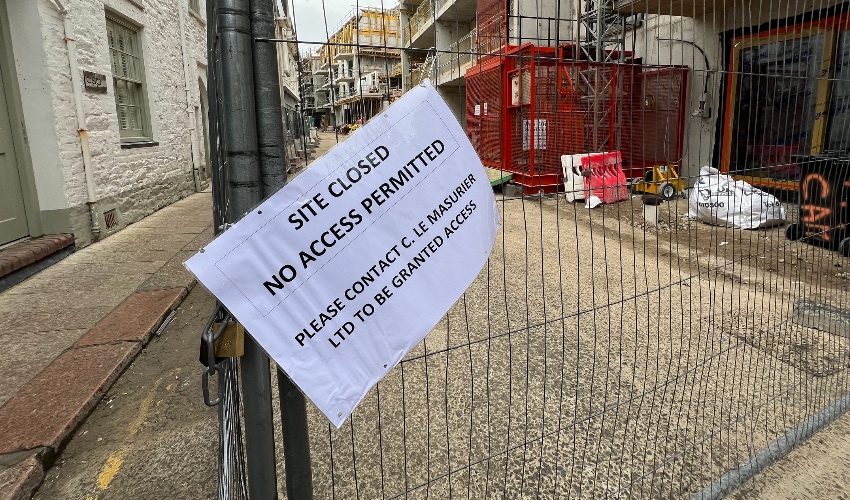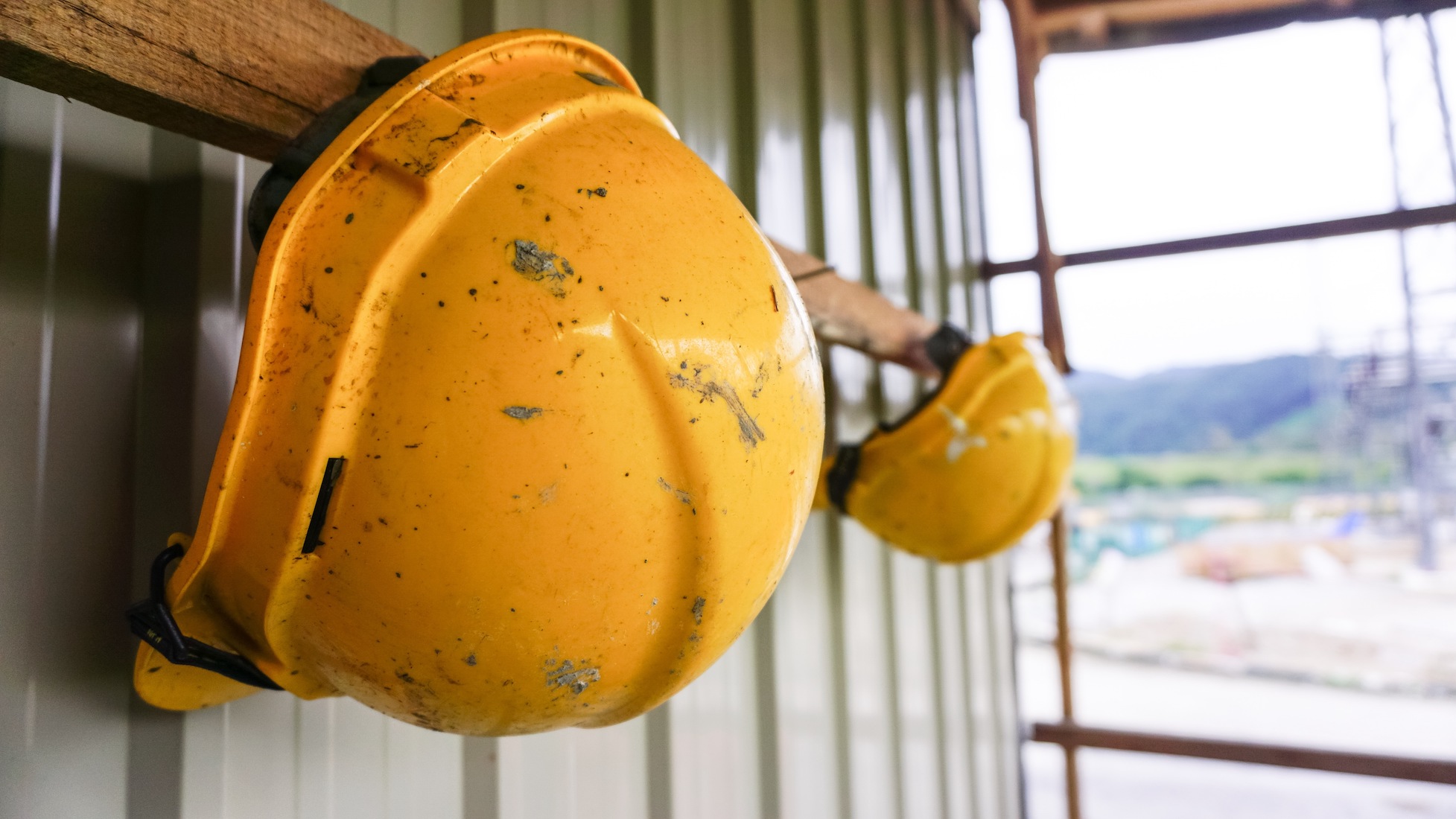


There is a real risk that subcontractors and suppliers will face a “double hit” of being owned money by both collapsed construction firms Camerons and JP Mauger, the industry’s trade body has said.
Jersey Construction Council Chair Simon Matthews said that it was “highly likely” that some firms left out of pocket when major contractor Camerons stopped trading in February would have also worked for, or supplied, JP Mauger, which closed down on Tuesday morning with the loss of 51 jobs.
Mr Matthews added that these firms would undoubtedly be stretched and while it was too soon to determine what would happen with JP Mauger and its creditors, he called on the Government to support local businesses by releasing more taxpayer-funded projects into the market, particularly those that supported mid-sized companies.

Pictured: Jersey Construction Council Chair, Simon Matthews.
On Tuesday, in an email to customers, subcontractors and suppliers, JP Mauger Owner and Managing Director Tadhg MacFirbhisigh said that “trading difficulties”, including a lack of projects and investment, meant that the business was no longer tenable and “with a heavy heart” the decision had been taken to close it down.
Speaking about the industry as a whole, Mr Matthews said that high interest rates and inflation meant that potential clients were thinking twice about moving, extending or progressing complex capital projects.
“Interest rates are encouraging people to save,” he said. “That money is being sucked out of the economy and materialising in reduced demand.
“On the supply side, high interest rates are leading to a scarcity of materials, which have a bearing on costs and is starting to squeeze margins.”
He added: “When it comes to JP Mauger, clearly the Council’s thoughts go out to the 51 staff, as well as the many, many businesses which supported the organisation.
“With Camerons, we saw banks, contractors and suppliers getting hit and while this might not be to the same scale, firms will undoubtedly lose out.
“It is also highly likely that contractors and suppliers who lost out when Camerons collapsed will also be owned money by JP Mauger. The real risk is that double hit.”

Pictured: Major building contractor Camerons stopped trading with immediate effect earlier this year.
Mr Matthews said that the Government had a role to play in supporting the construction sector.
“It is far too early to say what might have gone wrong at JP Mauger but it was certainly a well-run and well-set-up business," he said.
“What I would say is, if the Government has a long-term plan for the industry, then now is the time to get projects to market.
“We need small to medium-sized projects, such as refurbishments to existing premises.”
He added: “Rather than two £75m projects, which might use a handful of electricians or plumbers, it is much better to have 30 £5m projects, which would involve far more people.
“We have also seen a number of projects pulled, such as several parts of the Inspiring Active Places Strategy.
“In short, we need the Government to come up with a firm pipeline of projects, which allow the industry to properly plan ahead. We are not seeing that at the moment.”

Pictured: “We need small to medium-sized projects, such as refurbishments to existing premises.”
Stephen Regal, who sold his eponymous construction firm four years ago after more than 50 years in the trade, said while he was not fully aware of the reasons why Camerons and now JP Mauger had failed, fixed-price contracts may have played their part.
“Some 20 or 30 years ago, the States of Jersey contacted the Jersey Builders’ Federation and requested that the members considered tendering upon fixed-rate contracts," he said.
“This meant that fluctuations in the price of materials and or labour were now to be at the tendering contractors’ risk. This does not mean that variations to the contract would not be paid, merely changes in the cost of labour and or materials would not be.
“Although I argued long and hard that the Federation resist this change, it was carried by majority vote. I predicted the problems that this would cause, but nevertheless continued my company's membership; however, I decided that we would not tender for long-term contracts.
“I am unable to think of any other sphere of business that any industry would lock itself into fixing prices up to say two or three years ahead.”
He added: “I also note that some contracts have been placed by Government owned or run companies with non-domestic contractors.
“This cannot but have had some impact upon the turnover and aspirations of the local construction industry. After all, doesn’t Government possess a duty to help the local economy? Not at the expense of Government that is, but Jersey possesses some exceedingly experienced contractors.”
Mr Regal said that the covid pandemic and Brexit had also had a significant impact.
Comments
Comments on this story express the views of the commentator only, not Bailiwick Publishing. We are unable to guarantee the accuracy of any of those comments.